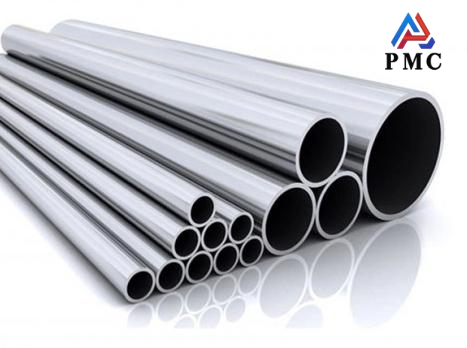
Sandblasting of Seamless Tubes: Definition, Purpose and Process
In industrial scenarios such as oil pipelines, chemical equipment, and building steel structures, seamless tubes have become key materials due to their high strength and corrosion resistance. But did you know that these steel pipes often need to undergo a crucial "beauty process" before they are put into use - sandblasting. This seemingly simple surface treatment technology is actually the core process for improving the performance of steel pipes.
Overview of sandblasting technology for seamless tubes
Definition: Sandblasting of seamless tubes as the name suggests, refers to a process of using sandblasting technology to treat the surface of seamless tubes. Sandblasting, also known as shot peening, uses compressed air to spray sand (or other abrasives) at high speed onto the surface of the workpiece. Through impact and friction, it can achieve the purpose of cleaning and removing oxide layers, rust, old coatings, etc. At the same time, it can also change the surface roughness of the workpiece and improve the adhesion of the coating.
Sand blasting of seamless tubes has the following main purposes:
1. Clean the surface (oxidation scale/rust/oil stains)
2. Improve coating adhesion (increase surface roughness)
3. Improve surface texture
4. Eliminate processing stress

Core parameters of sandblasting process for seamless tubes
Abrasive selection:
1. Quartz sand (rough treatment)
2. Alumina (precision treatment)
3. Glass beads (polishing treatment)
4. Steel shot (strengthening treatment)
Key parameters:
1. Sandblasting pressure: 0.4-0.8MPa
2. Spraying angle: 45°-75°
3. Spraying distance: 100-300mm
4. Moving speed: uniform speed operation
Seamless tubes sandblasting process
1. Preprocessing stage
Clean up the site: Clean up the sandblasting area and ensure that the site is clean and tidy.
Prepare sandblasting equipment: Check whether the sandblasting machine, air compressor, spray gun and other equipment are working properly.
Choose abrasive: According to different sandblasting purposes and requirements, choose appropriate abrasives, such as quartz sand, glass beads, aluminum oxide, etc.
Prepare protective equipment: Sandblasting workers need to wear protective clothing, gloves, masks and other protective equipment to protect their own safety.
2. Sand blasting
Adjust sandblasting parameters: Adjust sandblasting pressure, spray angle, spray distance and other parameters according to the workpiece material, size and sandblasting requirements.
Sandblasting: Operate the sandblasting gun to evenly spray the abrasive onto the surface of the seamless tubes for cleaning or surface treatment.
3. Post-processing
Cleaning: After sandblasting, the residual abrasive on the surface of the seamless steel pipe needs to be cleaned.
Inspection: Check the sandblasting effect to confirm whether it meets the requirements.
Coating: If necessary, the seamless steel pipe after sandblasting can be coated.
Main application areas
1. Oil and gas industry: used for cleaning and processing oil casing and oil pipelines
2. Chemical industry: used to clean and process chemical equipment, pipelines, etc.
3. Shipbuilding industry: used to clean and process hulls, decks, etc.
4. Machinery manufacturing industry: used to clean and process mechanical parts, equipment, etc.
5. Construction industry: used to clean and process steel structures, pipelines, etc.
Precautions
1. Safe operation: Sandblasting workers must undergo professional training and strictly follow the operating procedures to ensure their own safety.
2. Environmental protection: Dust and noise will be generated during the sandblasting process, and corresponding environmental protection measures need to be taken, such as dust removal and noise reduction.
3. Abrasive selection: Suitable abrasives should be selected according to different sandblasting purposes and requirements to avoid damage to the workpiece.
4. Parameter control: Sandblasting parameters (such as pressure, angle, distance, etc.) have an important influence on the sandblasting effect and need to be adjusted according to specific circumstances.
Read more: How to Ensure the Safety of Seamless Steel Pipes in Construction?


